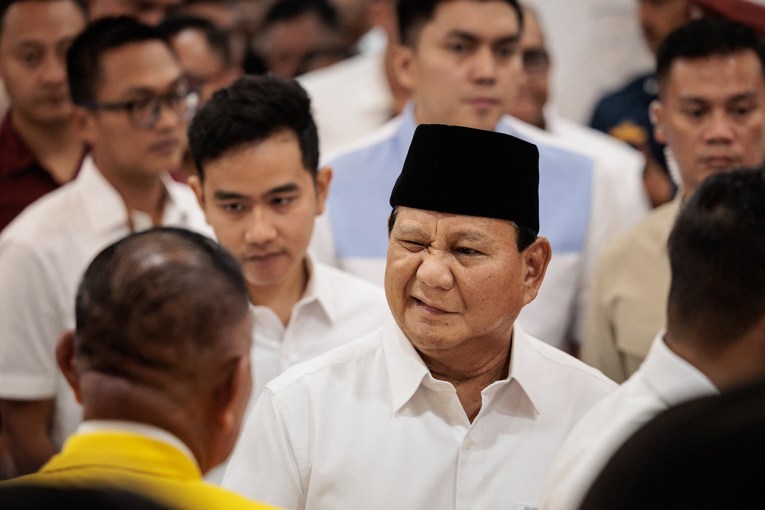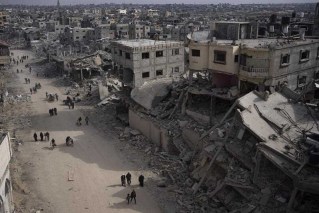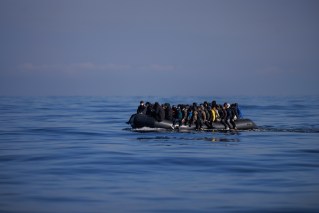Suicide blasts hit Iran embassy in Lebanon
A double suicide bombing outside the Iranian embassy in Beirut has killed at least 23 people, in an attack claimed by a jihadist group.
The attack, which also wounded almost 150 people in a southern Beirut stronghold of the Hezbollah movement, is the first time the Iranian embassy in Lebanon has been targeted.
The blasts ripped the facades off surrounding buildings, strewing rubble and glass on streets that were stained with blood.
Residents walked dazed past charred cars and trees, as soldiers and Hezbollah security men tried to secure the area.
The blasts follow two other bomb attacks this year in Hezbollah bastions in southern Beirut, amid rising tensions over the conflict in neighbouring Syria.
Iran is one of Syria’s closest allies, and is the key sponsor of Hezbollah, which has dispatched thousands of fighters to bolster the regime as it battles a 32-month-old uprising.
Damascus quickly condemned the mid-morning blasts.
“The Syrian government firmly condemns the terrorist attack carried out near the Iranian embassy in Beirut,” state television said.
It said an “odour of petrodollars comes from all the terrorist acts against Syria, Lebanon and Iraq,” an apparent reference to Saudi Arabia and Qatar, which support insurgents in Syria.
Iran also condemned the attack, accusing Israel and its “mercenaries” of responsibility.
Israel immediately denied involvement.
Britain and France also issued swift statements slamming the bombings, which London described as a “shocking terrorist attack”.
The blasts were claimed by the Abdullah Azzam Brigades, a jihadist group that has previously fired rockets at Israel from Lebanese territory.
“This is a double martyrdom operation carried out by two heros from the heroic Sunnis of Lebanon,” Sirajeddin Zreikat, a member of the group, wrote on his Twitter account.
The Lebanese army confirmed the attack was a double suicide bombing, and the health ministry said 23 people were dead and 146 wounded.
Iran’s ambassador Ghazanfar Rokn-Abadi said all staff inside the embassy at the time of the attack escaped unharmed.
“All colleagues inside the embassy are in full health,” he said, quoted by Mehr news agency.
Initial reports said an Iranian cultural adviser had been killed in the blast, but officials in Tehran said later that he was still showing “signs of life”.
A correspondent at the scene described blood and glass on the streets and Lebanese media broadcast harrowing images of charred bodies, some still on fire.
One shocked resident said the attack was an act of “savagery”.
“People want to live. After this kind of thing we are paralysed for days. Thank God my children were at school,” said Farah, a woman in her 30s.
Abu Ahmad, the owner of a household goods store facing the Iranian embassy, said: “I saw a man riding fast on a motorbike and heading towards the embassy entrance as some diplomatic cars were entering, and suddenly I heard shots and a huge blast which threw me to the back of my store.”
An armed embassy guard who escaped unharmed said the first blast was believed to have been carried out by the motorcyclist who blew himself up close to the gate.
He added that the second explosion, which came a few minutes after and caused much more damage, was a car bomb.
According to a security official at the scene, who asked not to be named, the second blast took place 40 metres away from the embassy entrance.
“We believe that the second suicide bomber was driving a black GMC four-wheel-drive, also heading towards the embassy entrance, but a small car blocked his way and he had to blow himself up before he reached his target,” the official added.
Inside one of the buildings a women sat at the entrance crying and weeping and shouting “this is what the Saudis and the Qataris want”.
At the nearby Rasul Aazem hospital, which received the bodies of seven people killed in the blasts, relatives waited to hear news of their loved ones while others queued to donate blood.
Hezbollah has already had its strongholds in southern Beirut targeted twice by car bombs this year, on July 9 and August 15, killing 27 people.
Its involvement in the Syrian conflict has angered many Lebanese Sunnis, who back the Sunni-dominated Syrian opposition.
It has also raised fears Lebanon could be engulfed by the Syrian conflict, which killed more than 120,000 people since March 2011.








